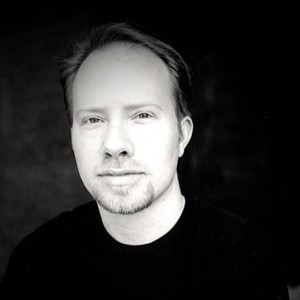
Official website
Facebook
SoundCloud
Bill’s scores have been nominated by the British Academy of Film and Television Arts, L.A. Weekly, and G.A.N.G., and have won awards from the ITVA, and BMI as well as the Music4Games Editor’s Choice award.
Tell us a little about yourself and what you do for a living?
I write (compose) and produce music for film, television and games. So far, I’ve scored 180 episodes of the television show CSI:NY, an interesting selection of films and 50+ triple-A game titles. I’m just about to start work on CSI:NY season 9 and more this fall.
What is your niche or specialty, that makes you stand out from rest of the audio professionals?
I’m always looking for a fresh direction, sound or perspective. My style is ultimately driven by the content I’m composing for. The collaboration and project are always king. My scores are pretty wide-ranging I guess, but they all share what I think is my thematic, textural, tonal ‘voice’ to whatever degree. I’m most known I think at this point in my career for CSI:NY and my orchestral game music. See http://www.billbrownmusic.com/ for more info on those.. And I love having the opportunities to write big orchestral themes and more intimate contemporary stuff. In the past few years I’ve been fortunate enough to work on some films and have soundtrack releases happening from them, which is great. The score from one of the most recent films, ‘Brother’s Keeper‘ was just released on iTunes on July 10th and is coming to Amazon and Spotify soon.. It’s more of an emotional, thematic score that I’m very comfortable doing as well. I’ve always been equally comfortable with technology and ‘traditional’ orchestration (writing for live players) so I guess that is a piece of the puzzle as well.
Can you give us a brief summary of the equipment you use regularly?
I use Logic Pro on a Mac Pro using Vienna Ensemble to connect to several orchestra PCs and I also use Avalon pre-amps as the analog front-end for my acoustic instruments.
What are your go-to plug-ins and software? (virtual instruments, audio processing etc.)
My custom sampled and synth instruments are my go-to firsts of course. Some other favs are Native Instruments, 8Dio, Spectrasonics, Project Sam, Lexicon effects, etc. – too many to choose from!
When do you find you are most creative?
When I’m having fun first and foremost. When I’m stretching and trying to take my craft to the next level, I find that is always a good place to start. My favorite moments are when themes and ideas start coming without my even trying – that’s when I know I’m connected to the project and then it’s just a matter of getting the ideas translated and shaping them to picture or concept.
What is your usual process for creating audio content for games, films etc.?
After I’m signed onto a project, I’ll meet with the team to discuss the direction of the score. Once we have a creative direction in place, I’ll go into the studio and create either a series of themes, or create underscore for specific scenes that will show the direction of the score. Usually after a week or so, I’ll either have the director and / or producers over to the studio to go through the new material to tweak / approve, or I’ll use QuickTime movies and the Internet for the same process. And then back to creating new score and repeating that creative collaboration until the project is complete.
Are there any particular secrets to your creativity?
No secrets, just plain old hard work and a passion for creating fresh, interesting sounds connected to the narrative story telling / film making process.
Do you have any audio creation techniques that resulted in something interesting?
My favorite thing is to get live players in a room and allow for some amount of ‘happenstance’ to occur in the recording process, that is where a lot of magic happens. Again, the theme for me is letting go of control over everything and having fun with the process.
Any specific “lessons learned” on a project that you could share?
I’ve learned over the years that the key ingredient to my job is listening and paying attention within the process of collaboration. I am bringing my expertise to the project, and part of that is an expertise of understanding what my collaborators are looking for on as many levels as possible. Recently, I was working with a really talented young director and instead of having him give me notes on a really long, key cue in the film. We got together in my studio and ‘edited’ the cue together, moving this section, thinning out another, and leaving with the idea of writing even more new material, etc. I let go of the need to be in control of everything, and in the process, the collaboration made the cue even more interesting musically and in relation to the film. But that makes perfect sense; I’m sitting with the director of the film, who knows it like no one else can.
Any tips, hints or motivational speeches for the readers?
If you’re not having fun with the material you’re creating, it’s most likely no one else will either. If you love it, there’s a good chance others will too. But don’t be attached to that part of it while you’re working, just have some fun! Remember you are exchanging a day of your life for creating that material – it is important.

